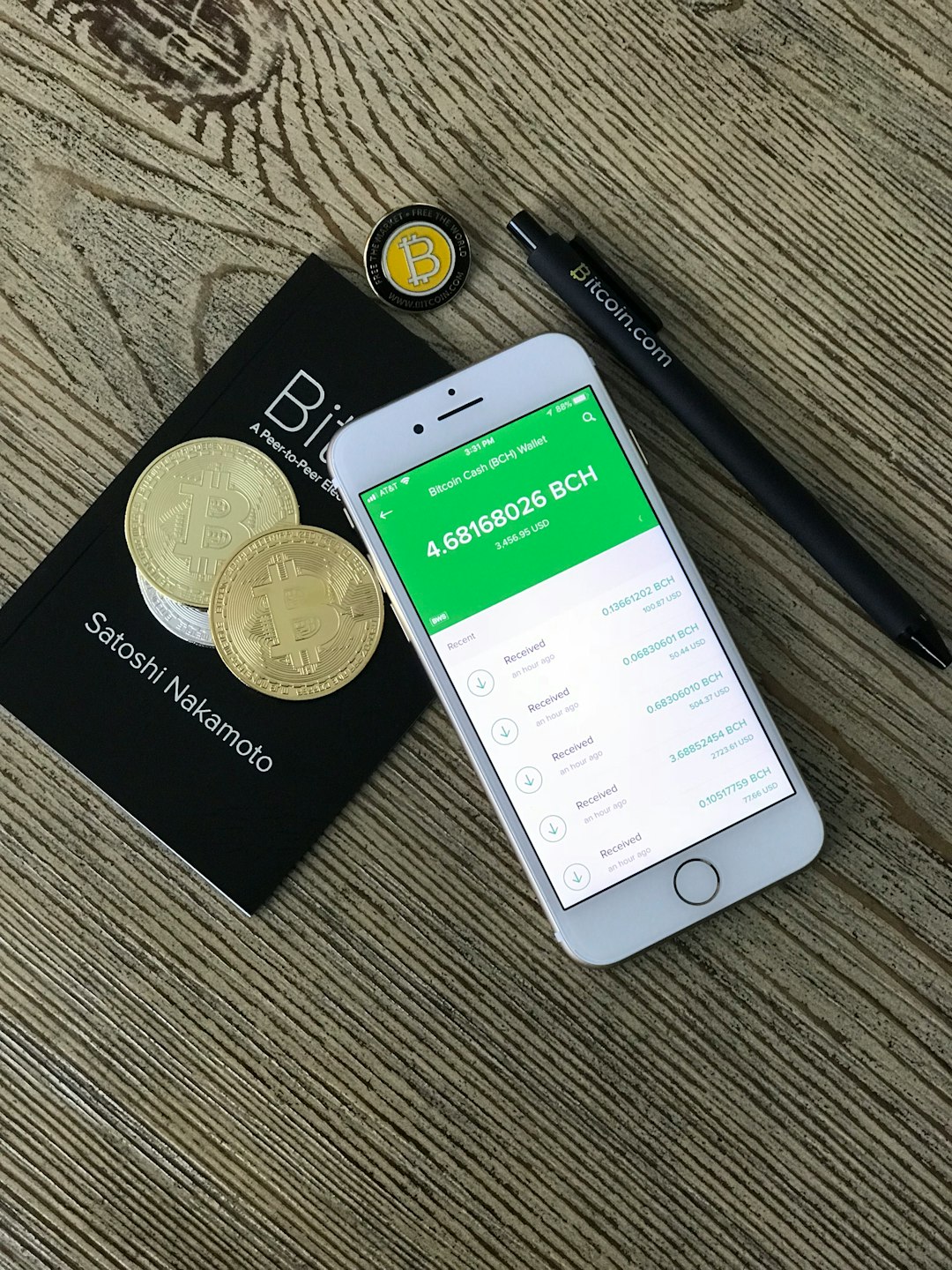In the evolving world of digital finance, cryptocurrency has become more accessible to the average user, with platforms like Cash App simplifying crypto buying, selling, and storing. A major feature that draws users to Cash App is its integrated Bitcoin wallet, which allows individuals to manage their crypto directly from their mobile devices. However, a common need for crypto holders is to transfer funds between Cash App’s crypto wallet and an external wallet—whether for security, investments, or spending purposes. Understanding how to manage these transactions is essential for anyone looking to gain more control over their digital assets.
Understanding Cash App’s Crypto Capabilities
Cash App, developed by Block, Inc., primarily offers services related to Bitcoin (BTC). The app supports buying, selling, holding, and withdrawing Bitcoin—offering an easy entry point into cryptocurrency. One thing users must keep in mind is that Cash App does not support Ethereum, Litecoin, Dogecoin, or other cryptocurrencies at this time. This guide will focus specifically on Bitcoin transfers.
Requirements Before Transferring
Before initiating any transaction between Cash App and an external wallet, users must meet certain prerequisites:
- Identity Verification: You must complete Cash App’s identity verification process to send or withdraw Bitcoin.
- External Wallet Address: You need an accurate Bitcoin (BTC) wallet address for the wallet you intend to transfer to or from.
- Mobile Device: Ensure your mobile device is connected to a stable internet connection and your Cash App is updated to the latest version.

How to Send Bitcoin from Cash App to an External Wallet
Sending Bitcoin from your Cash App to another wallet allows you to move your funds into a more secure or functional environment such as a hardware wallet or trading platform. Follow these steps to complete the transfer:
- Open Cash App: Launch the app and log in to your account.
- Navigate to Bitcoin: Tap the “Investing” tab and select Bitcoin.
- Withdraw Bitcoin: Tap the airplane icon or select “Send Bitcoin.”
- Enter Amount: Choose how much Bitcoin you’d like to send, keeping in mind the network fee.
- Scan or Enter Wallet Address: You can either scan the external wallet’s QR code or manually enter the recipient’s BTC address.
- Confirm Transfer: Review the details and confirm. You may be asked to enter a PIN or use biometric authentication.
Note: Bitcoin transfers on Cash App are irreversible. Always double-check recipient addresses before confirming.
How to Receive Bitcoin into Cash App from an External Wallet
Transferring Bitcoin from an external wallet into Cash App is useful for consolidating digital assets or selling BTC via the app. Here’s how to receive Bitcoin:
- Launch Cash App: Log in to your Cash App account.
- Go to Bitcoin Section: Tap the “Investing” tab and choose Bitcoin.
- Deposit Bitcoin: Tap “Deposit Bitcoin.”
- Copy Wallet Address: Your unique Cash App BTC wallet address will be shown. Copy it or tap the QR code icon to display a scannable version.
- Use External Wallet: Open the external wallet and paste the Cash App BTC address as the destination.
- Send the Funds: Enter the amount and confirm the transaction.
Transfers can take anywhere from a few minutes to an hour, depending on network congestion and the sending wallet’s transaction fee settings.
Security Best Practices
When dealing with any form of cryptocurrency, security should be a top priority. Follow these tips to keep your transfers secure:
- Double-check addresses: BTC addresses are long and complex. Always ensure accuracy when copying and pasting.
- Use 2FA: Enable two-factor authentication for all wallets and associated email accounts.
- Keep backups: Securely store your wallet backup phrases in multiple physical locations.
- Stay updated: Make sure you’re using the latest version of Cash App and any other wallet software.

Fees and Limits
Understanding the costs associated with Bitcoin transfers on Cash App can help you plan better:
- Withdrawal Fee: Cash App applies standard Bitcoin network fees for withdrawals. These vary depending on network congestion.
- Minimum Transfer Amount: For sending or receiving BTC, Cash App may set minimum thresholds, typically around 0.0001 BTC.
- Withdrawal Limits: Verified users can withdraw up to 2,000 USD worth of Bitcoin per 24 hours and up to 5,000 USD per week.
Common Use Cases for Transfers
There are several reasons why a user might want to move their Bitcoin:
- Security: Transferring to a hardware wallet eliminates exposure to online hacking risks.
- Trading: Users often send funds from Cash App to crypto exchanges like Binance or Coinbase to access trading pairs and advanced tools.
- Payment: Some prefer to use Bitcoin in wallets designed for day-to-day spending such as payment apps or merchant-specific wallets.
Troubleshooting Common Issues
Sometimes, users may face problems during transfers. Here are quick fixes:
- Transfer Delayed: Network congestion or unusually low transaction fees can delay confirmations.
- Invalid Address Error: Make sure you’re using a BTC wallet address. Cash App only supports Bitcoin—not Ethereum or other coins.
- Unverified Account: Users must complete identity verification before being able to send or receive Bitcoin.
Benefits of Transferring to External Wallets
While Cash App offers a user-friendly way to manage Bitcoin, external wallets offer distinct advantages:
- Control: With hardware wallets, you own your private keys.
- Diversification: External wallets often support multiple cryptocurrencies in one place.
- Functionality: Trading platforms and decentralized finance (DeFi) interfaces offer more tools for managing wealth.
Conclusion
Transferring Bitcoin between Cash App and external wallets can seem complex at first, but with a clear understanding of the steps involved, it becomes manageable and secure. As more users adopt digital currencies, the importance of knowing how to navigate wallets grows. By leveraging Cash App for basic transactions and using external wallets for advanced functions or added security, crypto holders can fine-tune their financial strategy and safeguard their assets effectively.
FAQ
- Q: Can I transfer Ethereum or other cryptocurrencies using Cash App?
A: No, Cash App currently only supports Bitcoin (BTC). - Q: Is there a fee when sending Bitcoin from Cash App?
A: Yes, Cash App charges a network fee based on blockchain congestion. This fee is displayed before confirmation. - Q: How long do Bitcoin transfers take?
A: Transactions are usually confirmed within 10–60 minutes depending on network traffic and transaction fees. - Q: Does Cash App allow Bitcoin deposits from any external wallet?
A: Yes, as long as the wallet supports Bitcoin and you use the correct BTC address provided by Cash App. - Q: What happens if I send crypto to the wrong address?
A: Crypto transactions are irreversible. If you send BTC to the wrong address, it cannot be recovered unless the recipient voluntarily sends it back. - Q: Is Cash App a wallet or an exchange?
A: It functions as a custodial wallet and a simple exchange for buying/selling BTC, but lacks the full features of larger crypto exchanges.